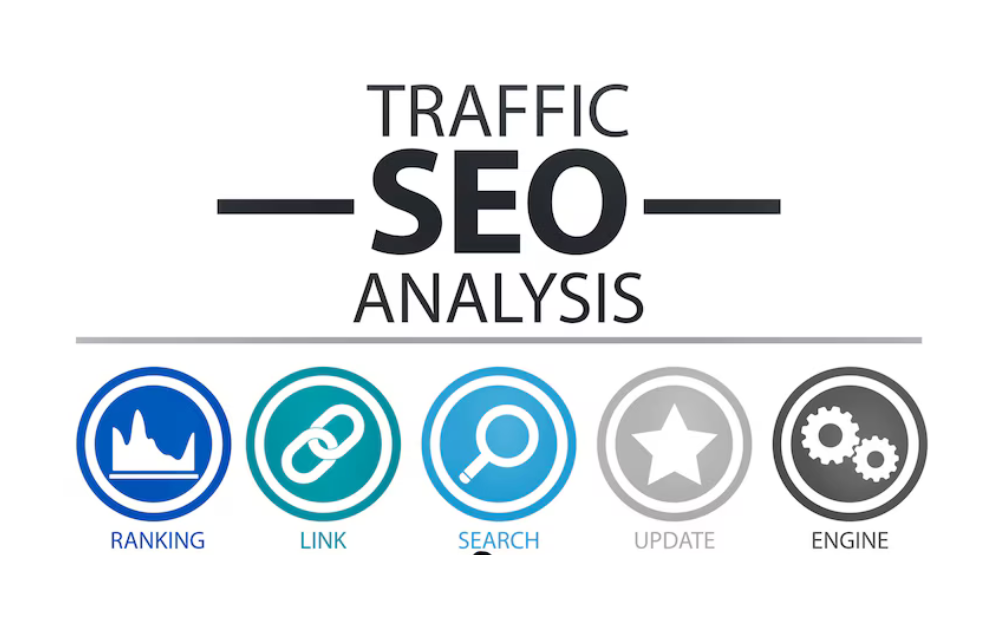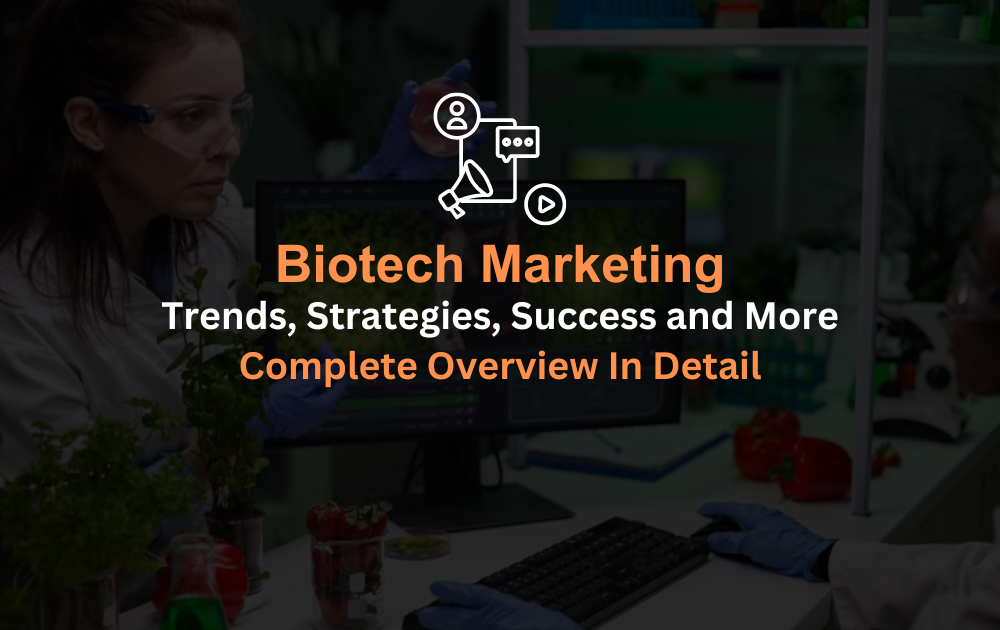Introduction to Biotech Marketing:
Biotech marketing encompasses the promotion of products and services within the life sciences industry, including pharmaceuticals, biotechnology, medical devices, and diagnostics. Unlike traditional consumer goods, biotech products often involve complex scientific concepts and regulatory hurdles, making marketing in this sector uniquely challenging yet rewarding.
Challenges in Biotech Marketing:
- Long development cycles: Biotech products typically undergo extensive research, development, and regulatory approval processes, resulting in lengthy timelines from concept to commercialization.
- Regulatory constraints: Strict regulations govern the marketing and advertising of pharmaceuticals and medical devices, requiring marketers to adhere to guidelines set by agencies such as the FDA, EMA, and others.
- Scientific complexity: Communicating the value proposition of biotech products requires translating technical jargon into language that resonates with healthcare professionals, patients, and other stakeholders.
Opportunities in Biotech Marketing:
- Addressing unmet medical needs: Biotech innovations have the potential to revolutionize healthcare by targeting diseases with high unmet need, such as rare genetic disorders, cancer, and infectious diseases.
- Personalized medicine: Advances in genomics and precision medicine enable tailored treatments based on patients’ genetic profiles, offering new opportunities for targeted marketing and patient engagement.
- Market expansion: Biotech companies can capitalize on global demand for innovative therapies and diagnostics, tapping into emerging markets and niche patient populations.
Trends in Biotech Marketing:
Personalized Medicine:
- Personalized medicine, or precision medicine, refers to customizing medical treatment according to the unique characteristics of each patient.
- Key trends in personalized medicine marketing include genetic testing services, companion diagnostics, and targeted therapy campaigns.
- Example: Illumina’s “Every Cell is a Universe” campaign highlights the potential of genetic sequencing to personalize healthcare and empower patients.
Gene Editing Technologies:
- Gene editing technologies such as CRISPR-Cas9 have revolutionized the field of biotechnology, offering precise tools for modifying DNA sequences.
- Biotech marketers can capitalize on gene editing trends by promoting gene therapy treatments, gene editing services, and educational content on genome editing.
- Example: Editas Medicine’s “Edit the Future” campaign raises awareness about the potential of CRISPR gene editing to treat genetic diseases.
Artificial Intelligence and Big Data Analytics:
- Artificial intelligence (AI) and big data analytics are transforming drug discovery, clinical trials, and healthcare delivery.
- Biotech marketers can leverage AI-driven analytics to identify patient populations, optimize marketing campaigns, and personalize patient communications.
- Example: IBM Watson for Drug Discovery uses AI to analyze biomedical literature and identify potential drug targets for biotech companies.

Content Marketing Strategies for Biotech Companies:
Educational Content:
- Biotech companies can create educational content to inform healthcare professionals, patients, and investors about their products and therapeutic areas.
- Educational content formats include white papers, scientific articles, blog posts, webinars, and educational videos.
- Example: Pfizer’s “Science of Breakthroughs” blog features articles and videos explaining the science behind their innovative therapies.
Thought Leadership Content:
- Thought leadership content positions biotech companies as industry experts and innovators, fostering trust and credibility among stakeholders.
- Thought leadership content can include opinion pieces, expert interviews, and commentary on industry trends and developments.
- Example: Biogen’s “Innovation Hub” hosts thought leadership articles written by their scientists and executives on topics such as neuroscience research and drug development.
Engagement Content:
- Engagement content encourages interaction and dialogue with stakeholders, fostering a sense of community and brand loyalty.
- Engagement content formats include social media polls, quizzes, contests, and user-generated content campaigns.
- Example: Amgen’s #AskAmgen Twitter chat invites followers to ask questions about biotech research and development, fostering engagement and conversation.

Social Media Marketing in Biotech:
LinkedIn:
- LinkedIn is a valuable platform for biotech marketers to connect with healthcare professionals, industry peers, and potential collaborators.
- Biotech companies can use LinkedIn to share thought leadership content, announce product launches, and recruit talent.
- Example: Moderna’s LinkedIn page features updates on their COVID-19 vaccine development efforts, scientific publications, and job openings.
Twitter:
- Twitter is an ideal platform for real-time updates, news sharing, and engaging in conversations with stakeholders.
- Biotech marketers can use Twitter to participate in industry chats, share scientific insights, and amplify their brand message.
- Example: Roche’s Twitter account shares updates on their oncology research, patient stories, and corporate social responsibility initiatives.
Instagram:
- Instagram offers biotech companies an opportunity to showcase their brand personality, culture, and visual storytelling.
- Biotech marketers can use Instagram to share behind-the-scenes glimpses, employee spotlights, and patient success stories.
- Example: Novartis’ Instagram account features vibrant visuals, patient testimonials, and infographics about their innovative therapies.

Search Engine Optimization (SEO) for Biotech Websites:
Keyword Research:
- Keyword research is the foundation of SEO for biotech websites, helping marketers understand the terms and phrases their target audience uses to search for information.
- Biotech marketers can use keyword research tools to identify high-volume, relevant keywords related to their products, therapeutic areas, and industry trends.
- Example: A biotech company specializing in cancer immunotherapy might target keywords such as “immune checkpoint inhibitors,” “CAR-T therapy,” and “oncology clinical trials.”
On-Page Optimization:
- On-page optimization involves optimizing website content, metadata, and HTML tags to improve search engine visibility and user experience.
- Biotech marketers can optimize page titles, meta descriptions, headers, and image alt text with target keywords and relevant information.
- Example: Including keywords such as “biotech marketing trends” and “biotech marketing strategies” in the meta tags and headers of a blog post about biotech marketing trends.
Content Creation:
- Creating high-quality, relevant content is essential for attracting organic traffic and establishing authority in search engine results.
- Biotech marketers can create informative, engaging content that addresses the needs and interests of their target audience, incorporating target keywords naturally throughout the content.
- Example: Publishing in-depth articles, case studies, and white papers on topics such as “advances in gene therapy” or “future trends in precision medicine.”

Email Marketing for Biotech:
Segmentation and Personalization:
- Segmenting email lists based on demographics, behavior, and interests allows biotech marketers to deliver personalized content tailored to each recipient’s needs.
- Personalized email campaigns can increase engagement, open rates, and conversions by delivering relevant content at the right time.
- Example: Sending targeted emails to healthcare professionals interested in specific therapeutic areas, such as oncology or rare diseases, with personalized subject lines and content recommendations.
Automated Workflows:
- Automated email workflows streamline communication and nurture leads through the sales funnel, from initial contact to conversion.
- Biotech marketers can set up automated workflows for lead nurturing, onboarding, re-engagement, and post-purchase follow-up, saving time and resources while maintaining consistent communication.
- Example: Setting up a drip campaign to deliver a series of educational emails to subscribers interested in a particular disease area, with each email providing valuable information and driving them towards a desired action, such as scheduling a consultation or downloading a resource.
Metrics and Analytics:
- Tracking email metrics such as open rates, click-through rates, and conversion rates provides insights into campaign performance and audience engagement.
- Biotech marketers can use email analytics to optimize campaign strategies, refine targeting, and improve overall marketing effectiveness.
- Example: Analyzing email engagement metrics to identify trends and patterns, such as which subject lines or content types resonate most with subscribers, and adjusting future campaigns accordingly to maximize effectiveness.

Influencer Marketing in the Biotech Industry:
Identifying Influencers:
- Identifying relevant influencers in the biotech industry requires research and understanding of key opinion leaders, patient advocates, and industry experts.
- Biotech marketers can use social listening tools, industry publications, and professional networks to identify influencers with the right expertise, reach, and credibility.
- Example: Identifying researchers, physicians, or patient advocates with a large following and expertise in a specific disease area, such as oncology or rare diseases, to serve as influencers for a targeted campaign.
Building Relationships:
- Building relationships with influencers involves establishing mutual trust, providing value, and fostering authentic connections.
- Biotech marketers can engage with influencers through social media, email outreach, or in-person events, offering opportunities for collaboration, content creation, and knowledge sharing.
- Example: Inviting influencers to participate in advisory boards, speaking engagements, or collaborative research projects, providing opportunities for them to share their expertise and insights with the broader community.
Measuring Impact:
- Measuring the impact of influencer marketing campaigns requires tracking key performance indicators (KPIs) such as reach, engagement, and conversion.
- Biotech marketers can use tools such as tracking links, referral codes, and campaign-specific metrics to attribute success to influencer contributions.
- Example: Monitoring website traffic, lead generation, and sales attributed to influencer referrals, and analyzing the ROI of influencer partnerships based on cost per acquisition (CPA) or customer lifetime value (CLV).
Event Marketing for Biotech Conferences and Trade Shows:
Pre-Event Promotion:
- Pre-event promotion is essential for generating excitement, driving attendance, and maximizing the impact of biotech conferences and trade shows.
- Biotech marketers can promote their participation through email campaigns, social media posts, website banners, and targeted advertising.
- Example: Sending personalized invitations to key stakeholders, offering discounts or incentives for early registration, and creating buzz with teaser content and behind-the-scenes previews of what attendees can expect.
Booth Design and Engagement:
- Booth design and engagement activities are critical for attracting visitors, facilitating conversations, and leaving a lasting impression at biotech events.
- Biotech marketers can design eye-catching displays, interactive demos, and engaging activities to draw attendees to their booth and spark meaningful conversations.
- Example: Hosting product demonstrations, interactive games, or live Q&A sessions with experts to engage visitors and showcase the value of their products or services.
Networking and Relationship Building:
- Networking and relationship building are central to event marketing success, offering opportunities to connect with industry peers, potential partners, and prospective customers.
- Biotech marketers can leverage networking events, cocktail receptions, and one-on-one meetings to build rapport, exchange insights, and explore collaboration opportunities.
- Example: Hosting a networking breakfast or luncheon for industry thought leaders, inviting key stakeholders to connect in a relaxed, informal setting and foster relationships that can lead to future partnerships or collaborations.
Regulatory Considerations in Biotech Marketing:
FDA Regulations:
- The Food and Drug Administration (FDA) regulates the marketing and advertising of prescription drugs, biologics, and medical devices in the United States.
- Biotech marketers must ensure compliance with FDA regulations governing product labeling, promotional claims, and advertising materials to avoid regulatory scrutiny and potential enforcement actions.
- Example: Ensuring that marketing materials accurately reflect the approved indications, dosage, contraindications, and safety information for biotech products, as required by FDA regulations.
International Regulations:
- Biotech marketers operating in global markets must navigate a complex landscape of international regulations, including those established by regulatory agencies such as the European Medicines Agency (EMA), Health Canada, and the Therapeutic Goods Administration (TGA).
- Compliance with international regulations requires understanding country-specific requirements, cultural sensitivities, and language considerations when developing marketing materials and campaigns.
- Example: Adapting marketing materials to comply with regulations in different regions, such as translating content into local languages, modifying imagery to reflect cultural norms, and ensuring compliance with specific labeling and packaging requirements.
Ethical Considerations:
- Ethical considerations are paramount in biotech marketing to ensure transparency, integrity, and respect for patient autonomy.
- Biotech marketers must adhere to ethical principles such as truthfulness, accuracy, and fairness when communicating with stakeholders, making promotional claims, and engaging in marketing activities.
- Example: Providing balanced and unbiased information about the benefits and risks of biotech products, disclosing potential conflicts of interest, and respecting patient privacy and confidentiality in marketing communications.
Case Studies of Successful Biotech Marketing Campaigns:
Genentech’s “Unicorn” Campaign:
- Genentech’s “Unicorn” campaign showcased the power of personalized medicine in cancer treatment, featuring patient stories and testimonials highlighting the transformative impact of targeted therapies.
- The campaign raised awareness about the importance of genomic testing and personalized treatment options, driving patient engagement and advocacy for precision medicine approaches.
- Example: A patient named Emily shared her journey with metastatic breast cancer and how genomic testing identified a targeted therapy that significantly extended her life expectancy and improved her quality of life.
Illumina’s “DNA Day” Social Media Campaign:
- Illumina’s “DNA Day” social media campaign celebrated the groundbreaking discoveries and advancements in genomics on National DNA Day.
- The campaign featured educational content, interactive quizzes, and user-generated content, engaging followers and fostering dialogue about the role of genetics in health and disease.
- Example: A series of Instagram posts showcasing the diversity of human genetic variation, encouraging followers to share their DNA stories and explore their ancestry using Illumina’s genetic testing services.
Novartis’ Influencer Marketing Partnership:
- Novartis partnered with patient advocates and influencers in the cystic fibrosis community to raise awareness about the disease and the importance of early diagnosis and treatment.
- The influencer marketing campaign featured personal stories, educational content, and advocacy initiatives, empowering patients and caregivers to become advocates for themselves and their loved ones.
- Example: Influencer Sarah, a cystic fibrosis patient and advocate, shared her journey living with the disease, advocating for access to innovative therapies, and inspiring others to stay hopeful and resilient in the face of adversity.
Conclusion:
In summary, mastering biotech marketing necessitates a multifaceted approach blending scientific acumen, strategic vision, and creative execution. From navigating regulatory landscapes to harnessing emerging technologies, biotech marketers must stay at the forefront to drive innovation, engage stakeholders, and achieve meaningful impact within the life sciences sector.
Understanding the distinct challenges and opportunities inherent in biotech marketing, along with embracing industry trends and adopting best practices across content creation, social media engagement, SEO, email marketing, influencer partnerships, and event marketing, positions biotech firms for success in a fiercely competitive and ever-evolving market.
Real-world case studies underscore the transformative potential of biotech marketing to drive positive outcomes for patients, healthcare providers, and society at large. Whether it’s raising awareness about personalized medicine, leveraging social media for dialogue and engagement, or collaborating with influencers to amplify brand credibility, biotech marketers play a pivotal role in shaping the future of healthcare.
As the biotech industry continues to push boundaries of innovation and discovery, opportunities for marketers to effect change abound. By embracing creativity, championing innovation, and remaining committed to their mission of enhancing lives through science, biotech marketers can chart a course for success in an industry poised to deliver a brighter, healthier future for all.
References:
- Food and Drug Administration (FDA): https://www.fda.gov/
- European Medicines Agency (EMA): https://www.ema.europa.eu/en
- Health Canada: https://www.canada.ca/en/health-canada.html
- Therapeutic Goods Administration (TGA): https://www.tga.gov.au/
- Genentech: https://www.gene.com/
- Illumina: https://www.illumina.com/
- Novartis: https://www.novartis.com/

